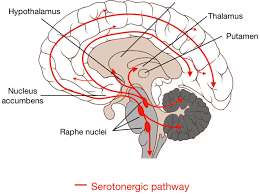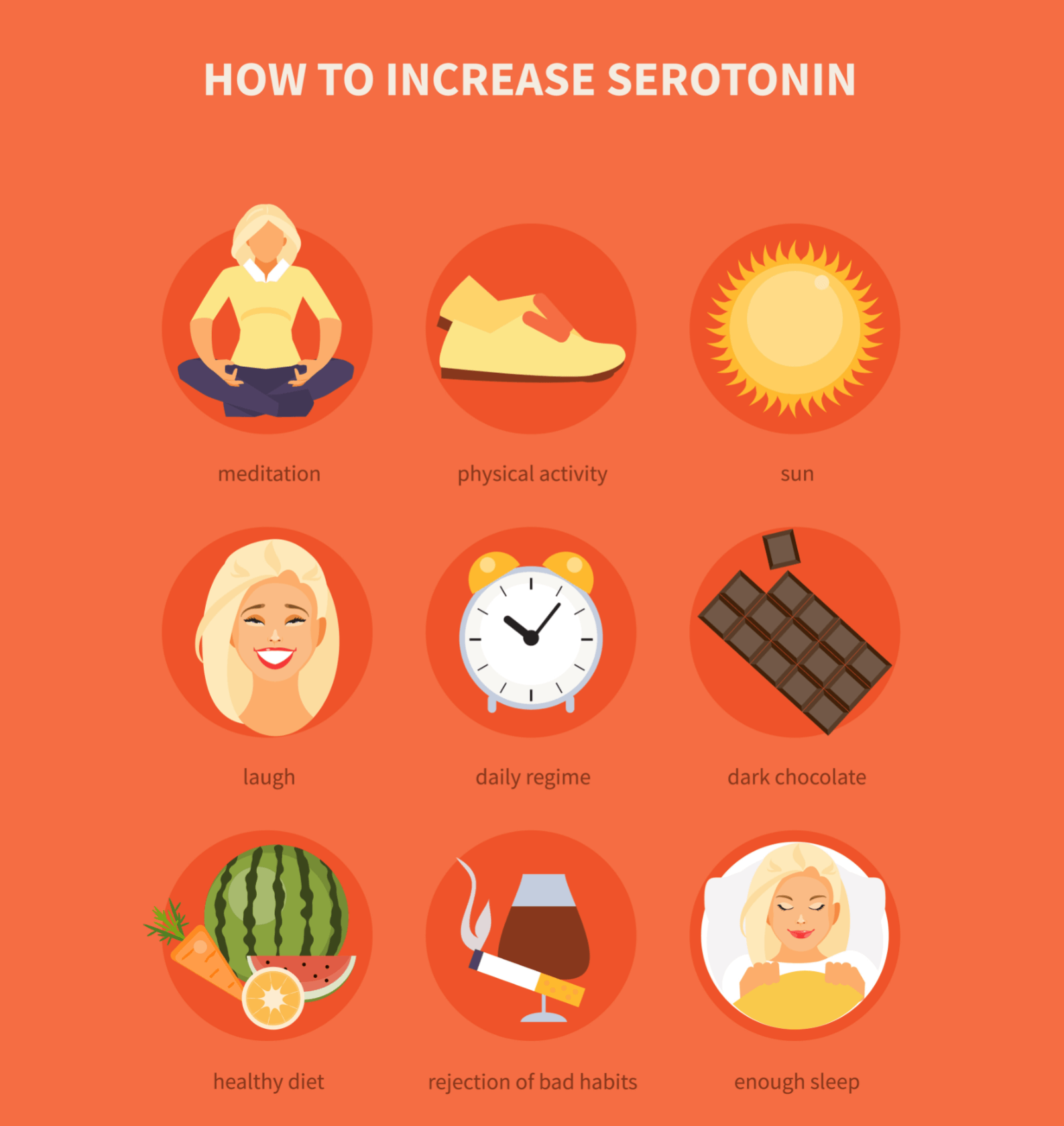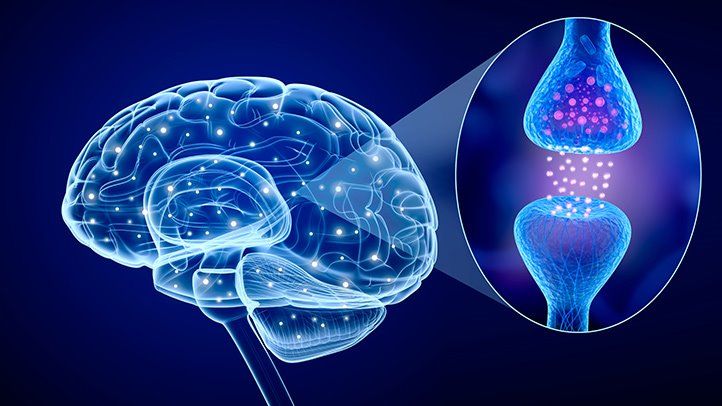Serotonin is a neurotransmitter that is responsible for mood, appetite, and sleep. When serotonin levels are low, it can cause a variety of symptoms that range from mild to debilitating. So, if you are experiencing low serotonin symptoms, it is important to understand what is happening and how to overcome it. In this guide, we will discuss everything you need to know about serotonin deficiency including what causes it, how to spot the signs, and how to treat it.
Contents
Understanding Serotonin

Serotonin is a neurotransmitter, one of the chemicals that carry messages between nerve cells in the brain. Incidentally, it plays an important role in mood, sleep, anxiety, and appetite according to research and studies. Evidently, a serotonin deficiency can cause a range of problems.
Where Are They Produced
Serotonin produces in the brain, gut, and blood platelets. However, you can also obtain it in some foods. In the brain, serotonin acts as a neurotransmitter. This means it helps relay messages between nerve cells.

- In The Brain: A group of neurons produces serotonin in the brainstem. These neurons send signals to other neurons in the brain and the spinal cord. The serotonin then binds to receptors on these cells, which helps regulate mood, sleep, anxiety, and appetite.
- In The Gut: Serotonin is also produced in the gut. It is thought to play a role in digestion and bowel movements. Serotonin levels in the gut can be affected by diet, stress, and medications.
- In The Blood: Serotonin is also found in the blood. It is thought to help regulate blood pressure and clotting. Serotonin levels in the blood can be affected by medications, stress, and illness.
Where Are They Released
It releases from the ends of nerve cells. It then travels to other nearby cells where it binds to receptors. Thus, this binding process helps relay messages between cells and affects mood, appetite, sleep, anxiety, and many other functions.
What Are Normal Serotonin Levels
Serotonin levels can vary depending on a person’s age, health, and lifestyle. Generally, higher levels of serotonin bear a link with better mood and mental health.
Spotting Low Serotonin Symptoms

Several factors can contribute to low serotonin levels. For instance:
- Stress
- Poor diet
- Lack of exercise
- Some medical conditions
- Some medications
Several symptoms may be indicative of low serotonin levels. For instance:
- PMS: Low serotonin levels bear a link with PMS. Symptoms of PMS include mood swings, irritability, and fatigue.
- Fatigue: Low serotonin levels result in feeling fatigued. Symptoms of fatigue include tiredness, low energy, and difficulty concentrating.
- Anxiety: Low serotonin levels trigger anxiety. Symptoms of anxiety include fear, racing thoughts, and difficulty sleeping.
- Irritability: Low serotonin levels may lead to irritability. Symptoms of irritability include anger, frustration, and difficulty coping with stress.
- Depression: Low serotonin levels are a characteristic indicator of depression. Symptoms of depression include sadness, fatigue, changes in appetite, and trouble concentrating.
- Headaches: Low serotonin levels often show up as headaches. Symptoms of headaches include migraines, tension headaches, and cluster headaches.
- Mood swings: Low serotonin levels may lead to mood swings. Symptoms of mood swings include sudden changes in mood, irritability, and depression.
- Trouble sleeping: Low serotonin may hamper your sleep. Symptoms of trouble sleeping include insomnia, restless sleep, and daytime fatigue.
- Changes in appetite: Low serotonin levels often spark changes in appetite. Symptoms of changes in appetite include weight gain or loss, cravings for certain foods, and overeating.
- Digestive problems: Low serotonin levels may cause digestive problems. Symptoms of digestive problems include constipation, diarrhea, and nausea.
NOTE: If you are experiencing any of the above symptoms, it is important to see a doctor. Since they will be able to rule out other conditions and confirm a diagnosis of serotonin deficiency.
Boosting Serotonin Levels

If you think you may have a serotonin deficiency, there are several things you can do to treat it. For instance:
- Exercise: Research and studies show that daily exercise increases serotonin levels. Thus, a moderate amount of exercise is the best way to increase serotonin levels.
- Activities: Activities that promote relaxation and reduce stress can help to increase serotonin levels. For instance, these activities include yoga, meditation, and aromatherapy.
- Diet: Eating a healthy diet is important for maintaining proper serotonin levels. Thus, foods that are rich in tryptophan, such as chicken, turkey, fish, and eggs, can help boost serotonin levels.
- Medication: Some medications can cause serotonin levels to drop. However, if you are taking medication, talk to your doctor about the possibility of serotonin deficiency. For instance, selective serotonin reuptake inhibitors (SSRIs) are the most common type of medication that helps treat serotonin deficiency.
NOTE: Reducing stress through relaxation techniques such as yoga or meditation can help to increase serotonin levels. In addition, getting enough sleep is important for overall health and can also help to increase serotonin levels.
Conclusion
Serotonin is a neurotransmitter that plays an important role in mood, sleep, anxiety, and appetite. Thus, a serotonin deficiency can cause a range of problems. For instance, symptoms of a serotonin deficiency include fatigue, anxiety, depression, headaches, and digestive problems. So, if you think you may have a serotonin deficiency, talk to your doctor. Since they can help to diagnose the problem and recommend the best course of treatment. Thanks for reading!
A Word From Therapy Mantra
Your mental health — Your psychological, emotional, and social well-being — has an impact on every aspect of your life. Positive mental health essentially allows you to effectively deal with life’s everyday challenges.
At TherapyMantra, we have a team of therapists who provide affordable online therapy to assist you with issues such as depression, anxiety, stress, workplace Issues, addiction, relationship, OCD, LGBTQ, and PTSD. You can book a free therapy or download our free Android or iOS app.


